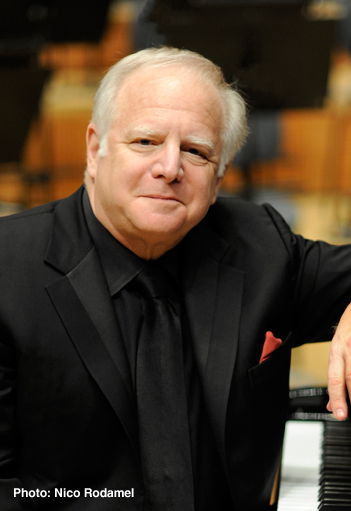The Detroit Symphony Orchestra (DSO) is known for trailblazing performances, collaborations with the world’s foremost musicians, and a deep connection to its city. In January 2020, Jader Bignamini was named Music Director, commencing from the 2020–21 season. Leonard Slatkin, who concluded a decade-long tenure at the helm in 2018, now serves as Music Director Laureate. Jeff Tyzik is the orchestra’s Principal Pops Conductor, and Terence Blanchard holds the Fred A. and Barbara M. Erb Jazz Creative Director Chair.
Making its home at Orchestra Hall within the Max M. and Marjorie S. Fisher Music Center, the DSO’s schedule features Classical, PNC Pops, Paradise Jazz, and Young People’s Family Concert series. The orchestra also presents the William Davidson Neighborhood Concert Series, as well as multi-genre performances at The Cube. In 1922 the DSO became the first orchestra to present a radio broadcast and continues today with the free Live from Orchestra Hall webcast series.
With growing attendance and philanthropic support, the DSO pursues a mission to inspire individuals, families, and communities through music.
For more information, visit www.dso.org.


Internationally acclaimed conductor Leonard Slatkin is Music Director Laureate of the Detroit Symphony Orchestra (DSO), Directeur Musical Honoraire of the Orchestre National de Lyon (ONL), and Conductor Laureate of the St. Louis Symphony Orchestra. He maintains a rigorous schedule of guest conducting throughout the world and is active as a composer, author, and educator. Slatkin has received six GRAMMY awards and 35 nominations.
One of his recent recordings is the world premiere of Alexander Kastalsky’s Requiem for Fallen Brothers commemorating the 100th anniversary of the armistice ending World War I. Other recent Naxos releases include works by Saint-Saëns, Ravel, and Berlioz (with the ONL) and music by Copland, Rachmaninov, Borzova, McTee, and John Williams (with the DSO). In addition, he has recorded the complete Brahms, Beethoven, and Tchaikovsky symphonies with the DSO (available online as digital downloads).
A recipient of the prestigious National Medal of Arts, Slatkin also holds the rank of Chevalier in the French Legion of Honor. He has received the Prix Charbonnier from the Federation of Alliances Françaises, Austria’s Decoration of Honor in Silver, the League of American Orchestras’ Gold Baton Award, and the 2013 ASCAP Deems Taylor Special Recognition Award for his debut book, Conducting Business. A second volume, Leading Tones: Reflections on Music, Musicians, and the Music Industry, was published by Amadeus Press in 2017. His latest book, Classical Crossroads: The Path Forward for Music in the 21st Century (2021), is available through Rowman & Littlefield.
Slatkin has conducted virtually all the leading orchestras in the world. As Music Director, he has held posts in New Orleans; St. Louis; Washington, DC; London (with the BBC Symphony Orchestra); Detroit; and Lyon, France. He has also served as Principal Guest Conductor in Pittsburgh, Los Angeles, Minneapolis, and Cleveland.
John Williams was a pupil in California of Castelnuovo-Tedesco and a piano pupil of Rosa Lhévinne at the Juilliard School in New York. He then became a studio pianist in Hollywood, where he worked with leading film composers Herrmann, Newman and Waxman. He himself has won an outstanding reputation as a composer of film music, and has also written works for the concert hall.
Film Music
Williams has written successful scores for a large number of films, including episodes of Star Wars and the Harry Potter films. Other films include Robson’s 1974 Earthquake, Spielberg’s Jaws (1975), E.T. (1982), Schindler’s List (1993) and War of the Worlds (2005), and Rob Marshall’s Memoirs of a Geisha (2005).






























